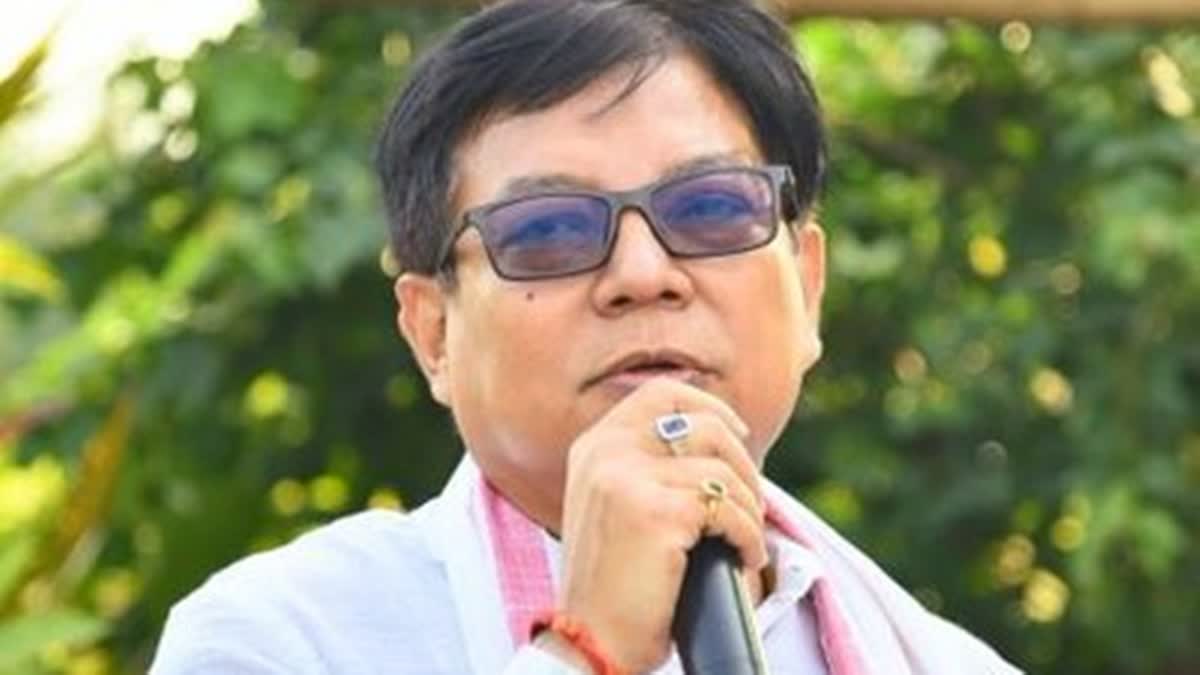Guwahati: Senior Congress leader from Assam Debabrata Saikia has moved the Supreme Court amid the statewide protests against the implementation of the Citizenship Amendment Act (CAA)-2019.
The rules for the CAA, which was passed by the BJP government at the Centre in 2019 and provides citizenship to non-Muslim migrants, were notified by the Union Ministry of Home Affairs on Monday March 11 triggering protests.
Congress leader and Leader of Opposition in the Assam Assembly Debabrata Saikia on Tuesday filed an interlocutory petition (IA) in the Supreme Court challenging the rules issued by the Ministry of Home Affairs for implementation of the Citizenship (Amendment) Act, 2019.
In the interlocutory petition filed in the Supreme Court, Debabrata Saikia also challenged the original legislation passed by the Parliament of the country on December 12, 2019, i.e the Citizenship (Amendment) Act, 2019.
The recently published rules under the Citizenship (Amendment) Act, 2019 grant Indian citizenship to non-Muslim migrants who have entered India from Pakistan, Bangladesh and Afghanistan as minority refugees till December 31, 2014.
The petition filed by Congress leader Saikia in the highest court of the country stated that the rules make religion and country-based classification which fails the manifest arbitrariness test laid down in Shayara Bano vs Union of India (2017) 9 SCO 1 in that it is not fair, not reasonable, discriminatory, not transparent, capricious, biased, with favoritism or nepotism and not in pursuit of promotion of healthy competition and equitable treatment.
“The normal rule of presumption of constitutionality of a statute does not apply in the present case. The rules violate Article 14 of the Constitution, which guarantees equality to all persons: citizens and foreigners. Differentiating between the people along religious lines, especially when it comes to citizenship issues, would violate the Constitution,” the petitioner Debabrata Saikia, said in the petition.
In the petition, the Congress leader also raised the issue of Tamils persecuted in Sri Lanka. Saikia claimed in the petition that the controversial act and rules were not based on any conclusive principle and hence it was clearly arbitrary.
The petition further said, the impugned Act and Rules are not based on any determining principle and hence are manifestly arbitrary. “The object of the Act states that the three selected countries provide for a specific state religion. As a result, many persons belonging to Hindu, Sikh, Buddhist, Jain, Parsi and Christian communities have faced persecution on grounds of religion in those countries. However, Sri Lanka also has a state religion. The classification might be singling out persecuted religious minorities. However, on this logic, Sri Lankan Eelam Tamils must also be included, as the Tamil Eelams are persecuted based (Hinduism) and ethnicity,” the petition said.
Saikia, in his petition filed in the Supreme Court, has also argued that the Act is against the Assam Accord of 1985 by granting citizenship to non-Muslim illegal immigrants who came to India from Afghanistan, Bangladesh and Pakistan before December 31, 2014. The senior Congress leader also informed the apex court that being confined to religion is an attempt to destroy Assam's ethnic diversity and socio-economic system.
- Read more: 'Need to Understand CAA Doesn't Take Away Citizenship': Union Law Minister Arjun Ram Meghwal
- Shah draws battle line in Nizam's city amid CAA row, Visits Bhagyalakshmi Temple next to Charminar
- CAA Notification BJP's "Ramadan Gift" to Muslims: Omar Abdullah
